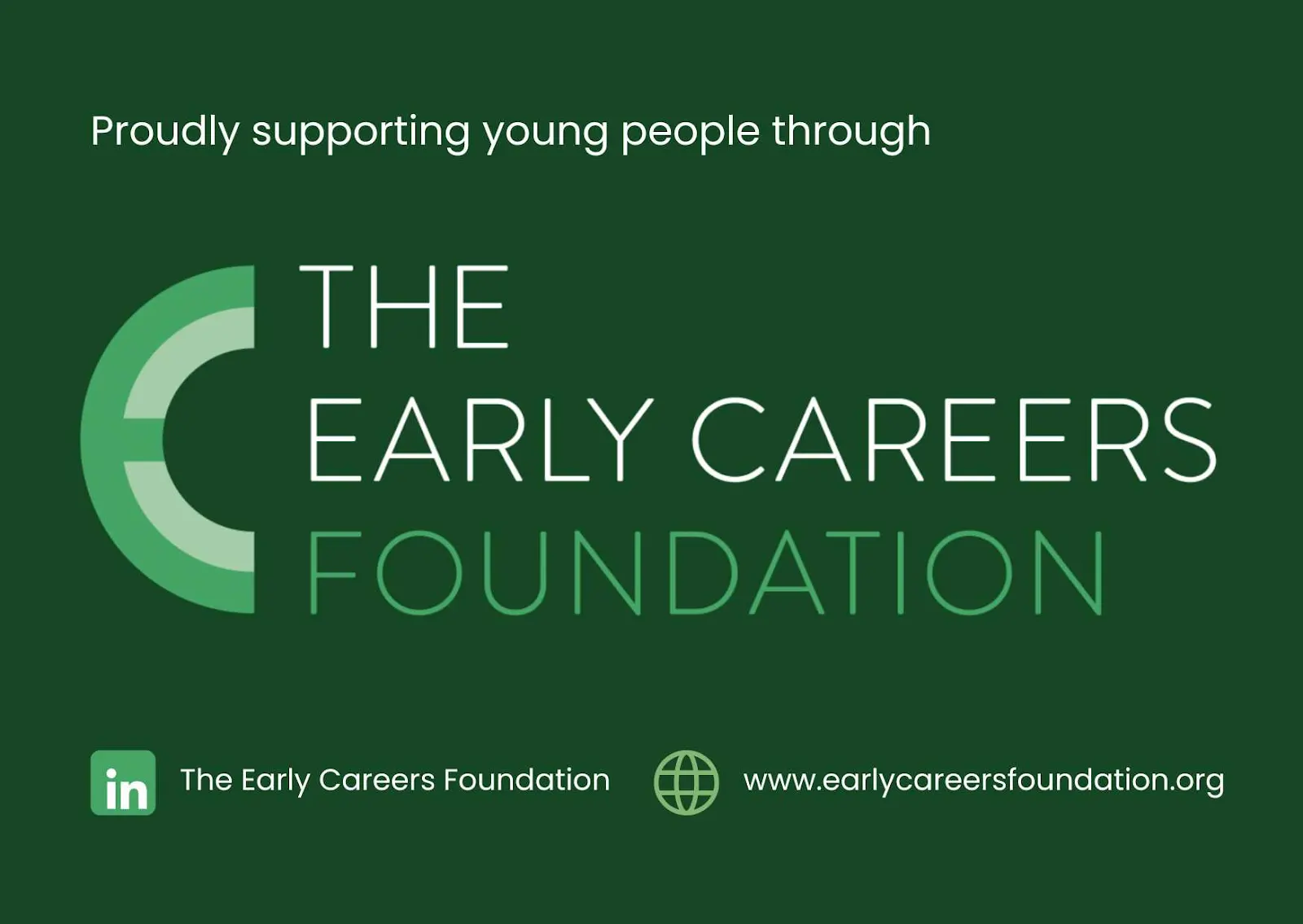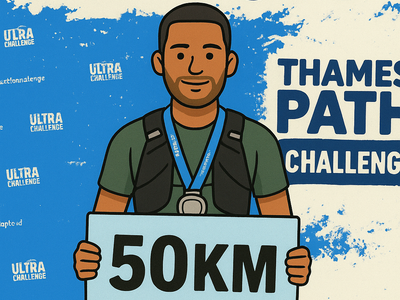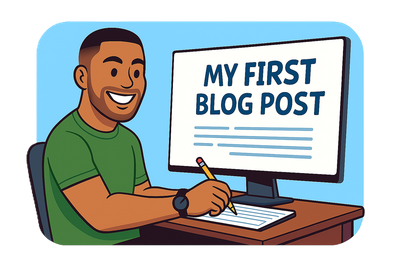I Spent 1 Year Mentoring, Here’s What I Learned
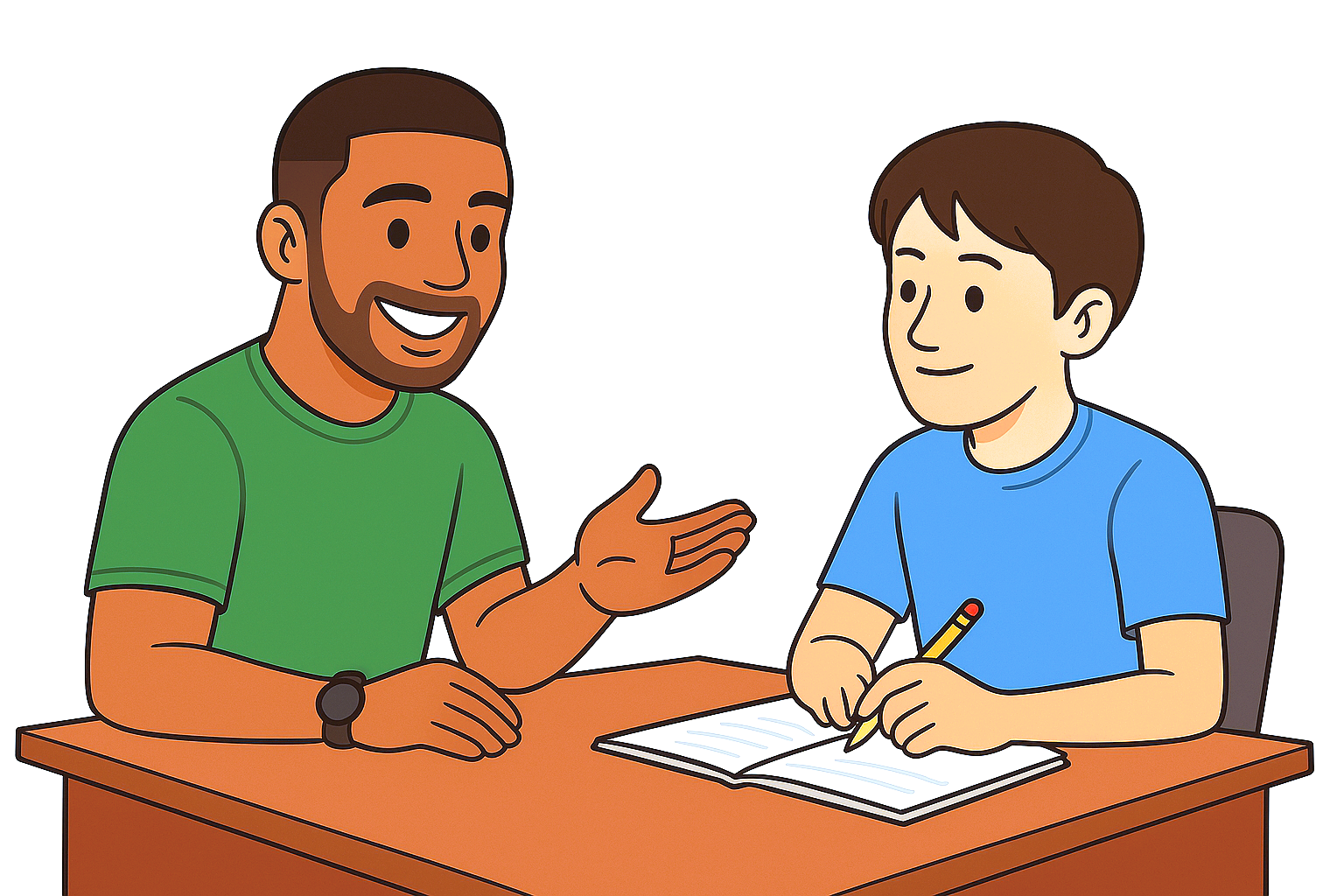
You can learn a lot from teaching others. The famous Stoic philosopher Seneca wrote:
“Homines dum docent discunt.” – Seneca
Translating to “men learn while they teach”. This slightly predates gender-neutral language; however, it is still relevant 1,960-odd years later. Today it is commonly referred to as “The Protégé Effect”, with various studies supporting it.[^Fiorella, L., & Mayer, R. E. (2013, October). The relative benefits of learning by teaching and teaching expectancy. Contemporary Educational Psychology, 38(4), 281-288. Retrieved August 2025, from https://www.sciencedirect.com/science/article/abs/pii/S0361476X13000209][^Koh, A. W., Lee, S. C., & Lim, S. W. (2018, April). The learning benefits of teaching: A retrieval practice hypothesis. Applied Cognitive Psychology, 32(3), 401-410. Retrieved August 2025, from https://onlinelibrary.wiley.com/doi/full/10.1002/acp.3410]
The benefits of being a mentee are well understood; however, being a mentor comes with its own positives. I’m not talking about the warm and fuzzy feeling of ‘giving back’, instead the range of personal development benefits.
Over the last year I’ve worked with The Early Careers Foundation who aim to enabling social mobility through the mentoring of a young person. Building their confidence and employability skills. I’ve previously also mentored as part of The Engineering Development Trust and The University of Kent.
In this post I highlight three key benefits I experienced from being a mentor, and how you can become one too.
- Increased self-awareness
- Stronger communication skills
- Exposure to a unique perspective
Benefit 1: Increased self-awareness
Being an effective mentor forces you to reflect on your own thoughts, past decisions, and biases. You can’t meaningfully attempt to guide someone else if you don’t know what got you to where you are today, or even who you are.
Self-awareness is a rare and powerful trait. Tasha Eurich is commonly cited for her research that concludes while most people believe they are self-aware, only 10%–15% of people actually are[^Eurich, T. (2018, January 04). What Self-Awareness Really Is (And How to Cultivate It). Harvard Business Review, pp. 1-9. Retrieved from HBR.org: https://membership.amavic.com.au/files/What%20self-awareness%20is%20and%20how%20to%20cultivate%20it_HBR_2018.pdf]. So what are the other 85%–90% of us?
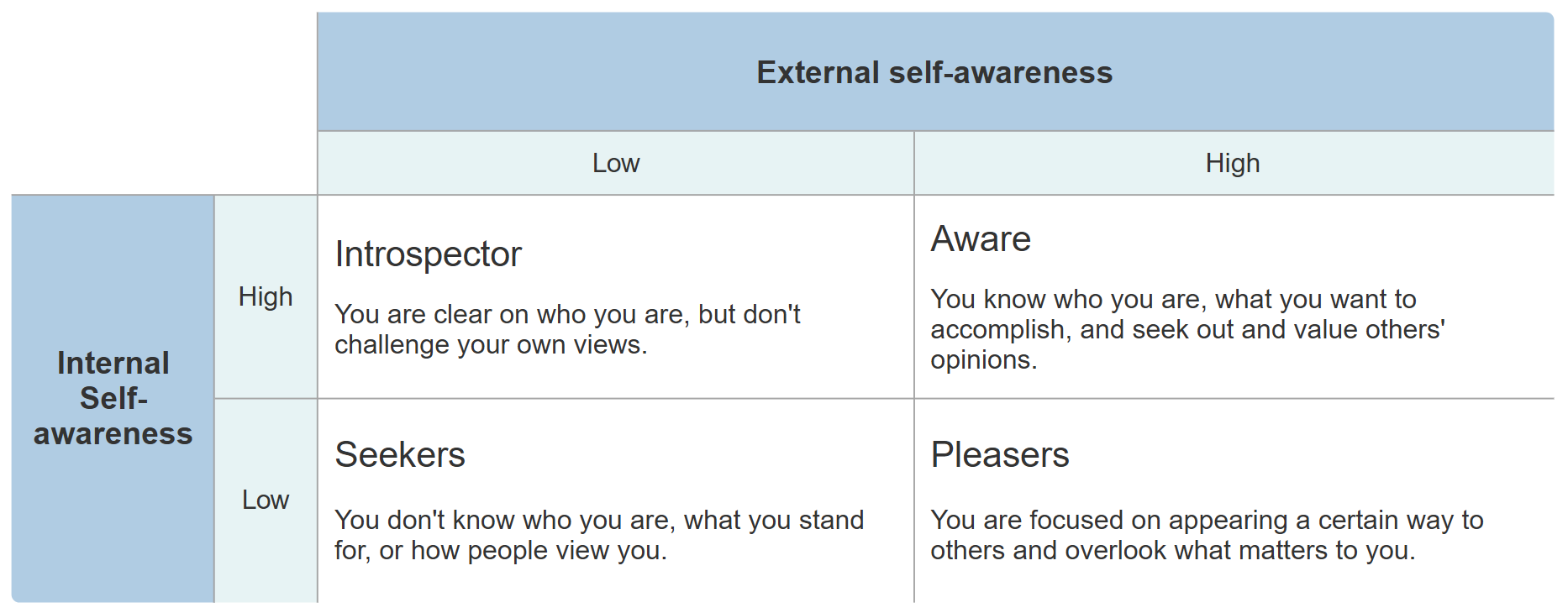
Self-awareness can be broken down by internal (how well you know yourself) and external (how well you understand what others think of you) — it’s likely we fall into one of the archetypes in Figure 1 that isn’t ‘Aware’.
Mentoring is especially useful for developing your internal self-awareness. It’s a great reminder to reflect on if what you are saying truly aligns to what you believe, and a test that exposes your biases by pitting your mindset against someone else’s unique perspective.
Benefit 2: Stronger communication skills
The two main communication skills gained through mentoring are active listening and effective questioning.
Active listening
This is especially important in the initial stage of mentoring when you are building a rapport with your mentee. Active listening can aid in building a psychologically safe environment. If you are truly listening with the intent to understand, instead of replying, then both you and your mentee will find the sessions significantly more rewarding. You will go much deeper than surface level problem solving.
Effective questioning
Active listening and effective questioning go hand in hand. A great mentor doesn’t just give answers: they guide their mentee to find their own solutions through insightful questions. The key to this is open-ended questions that encourage reflection and critical thinking. If you’re a product manager reading this then it should sound familiar, this is a skill we use continuously in our customer interviews.
Benefit 3: Exposure to a unique perspective
If you have been actively listening and asking effective questions, then you are in a great position to improve your self-awareness through the exposure of your mentee’s unique perspective.
Mentoring isn’t a one-way conversation of you just offering advice, you’re receiving an account from the mentee’s perspective of their world, which is likely quite different to your own. This is true, and probably more so the case for reverse mentoring.
My experience of mentoring the younger generation (Gen Z) has been eye opening. A generation negatively stereotyped as lazy, social media addicted job-hoppers (according to AI); however, in my experience with my mentees, I’ve found them highly emotionally intelligent and open to exploring alternative career paths with a drive to shape the world around them as opposed to letting the world shape them.
In my opinion, this is the most underrated benefit of being a mentor.
How you can become a mentor
There are many ways to become a mentor, you can do it informally at work through a small regular commitment with a junior peer. Or it can be done in reverse with a senior colleague as a formal agreement.
As previously mentioned, I finished a year of mentoring through The Early Careers Foundation, an organisation that focuses on connecting talented young people to a mentor with the goal of increasing social mobility. The Early Careers Foundation works directly with corporate partners completely free of charge. Use the link below to get in touch. 👇🏽
Don't let talent go undiscovered. Get in touch with The Early Careers Foundation to become a mentor and explore corporate partner opportunities.
